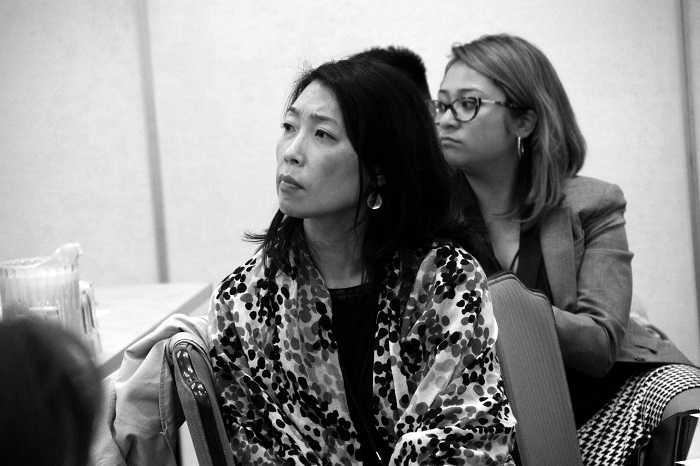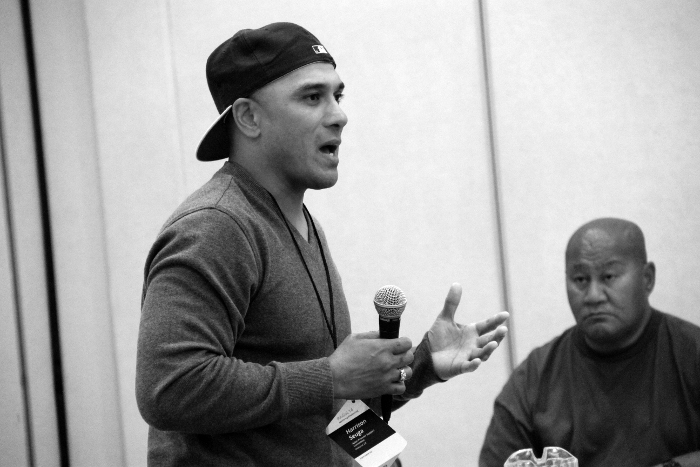Cultural Empowerment Models
Formerly incarcerated men who have participated in Roots 2 Reentry shared their knowledge regarding incarceration and cultural stigma in Asian and Pacific Islander (API) communities and the process of community-building in the reentry process.
Presenters/Moderators
Eddy Zheng
Asian Prisoner Support Committee
Harrison Seuga
Asian Prisoner Support Committee
Ben Wang
Asian Prisoner Support Committee
Kasi Chakravartula
Asian Prisoner Support Committee
Main Points
- It is important not to disregard incarcerated Asian and Pacific Islanders (APIs), a population often forgotten about, isolated, and shamed. Culture studies within prison and schools can help alleviate some of these stereotypes and social stigmas.
- Incarceration rates of API have grown by 250 percent. Today there are high criminalization rates for some Southeast Asian and Pacific Islander groups.
- Asian Prisoner Support Committee’s mission is to provide support to API prisoners and to raise awareness about the impact of criminalization on this community. The organization also addresses the isolation and stigma that many API prisoners face. They believe that access to culturally competent rehabilitative resources will lead to safer communities, not mass incarceration.
- There is a cultural stigma with incarceration among API. It creates a model minority myth because there is little talk about the bad things in the API community. It was only recently that the API community decided that we need to talk about this issue.
- Segregation exists within prisons based on race. APIs are categorized under the “other” category along with other populations.

Programs
- The SQ ROOTS program is a weekly class at San Quentin comprised of 30 lifers primarily of API background who talk about culturally relevant themes. Participants also increase their knowledge about reentry planning and preparing for the parole board, as well as build leadership skills and their comfort level in talking about their history. It started with asking the incarcerated what they need. This is one of the first programs to provide these kinds of services.
- Roots 2 Reentry is a program to reduce recidivism by providing community reintegration activities and case management services referrals.

Key Strategies
- It is important that people know cultural history, specifically the histories of peoples.
- We need to include cultural healing and community building for immigrant and refugee groups.
- Organizations should look for more support and share models with other organizations and leaders.
- K-12 schools should have ethnic studies.
- The government should allow for grants to help formerly incarcerated get training and jobs. These should be thought of as another investment for the small business owner.
- We have to “ban the box” in job applications for ex-offenders.
Standout Quotes
"You can’t judge people based on their looks. It is the actions that define you."
Eddy Zheng
"I told them I am Samoan . . . the prison system said, “No, you are an other."
Harrison Seuga





